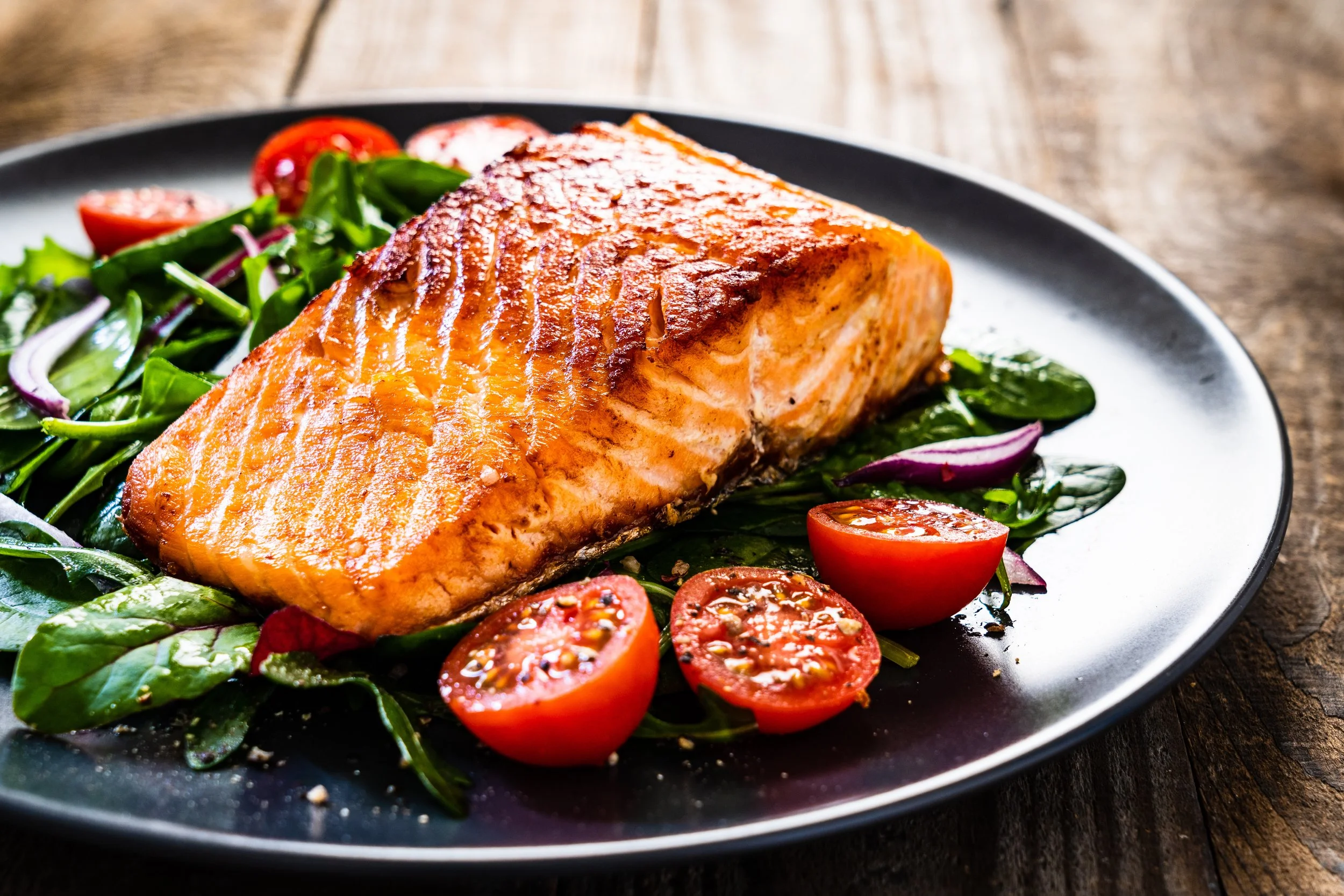Holy Mackerel! Fish is a Great Choice
There are many foods that support heart health, but one of the nutrients that is most important to maintaining healthy cardiovascular function is Omega-3 fatty acids. An excellent source of Omega-3s is fish – fish is low in saturated fat and is high in Omega-3s.
According to the Harvard School of Public Health, eating two grams of Omega-3 fatty acids from fish each week "reduces the risk of dying from heart disease by 36 percent." Aim for two servings of cold-water, fatty fish each week, such as salmon, halibut, and lake-trout. Smaller cold water fish, such as sardines and herring, are also good choices – high in Omega-3s and lower in mercury than larger cold water fish. According to the U.S. Environmental Protection Agency (EPA), mackerel and tuna often have high levels of mercury, although light canned tuna is usually lower in mercury, as is salmon – one of the safest cold-water fish. Warm-water fish (tilapia, trout and bass for example) are good for you, they just don’t have as much Omega-3s. Make sure you bake or grill your fish -- fried fish adds unhealthy fats and cancels out the health benefits!
If you don’t like fish, you can also get Omega-3s from flaxseed, chia seeds and nuts such as almonds and walnuts. Nuts are a great choice because they are high in monounsaturated fat, which lowers LDL cholesterol (the “bad” cholesterol). Studies show that people who eat an ounce of nuts a day have a lower risk of heart disease.
But let’s get back to fish, because where it comes from is important. While “farm-raised” fish may sound healthy, typically these fish are factory-farmed, raised to produce large quantities of big fish. Farm-factory fish are often fed hormones, antibiotics and/or pesticides. That’s not what we want to put in our bodies! Instead, whenever possible, select certified wild fish. Not only do they contain fewer harmful chemicals, wild fish also contain more protein and Omega-3s than farm-raised fish. Note that there are some exceptions; for example, Whole Foods offers fish from small-scale, artisanal or boutique-style fish farms that practice sustainable and eco-friendly techniques. These fish are as healthy (or even healthier!) than wild-caught fish. There may be similar providers in your area.











